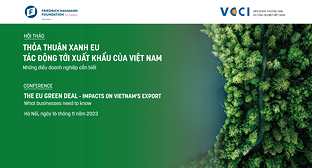Hard times for free traders
13/03/2008 12:00
Hillary Clinton and Barack Obama are vying in the Democratic primaries to criticize the North American Free Trade Agreement with
On the other side of the
olitical opposition has forced the European Union's trade commissioner, Peter Mandelson, to delay a reform of anti-dumping duties meant to take account of the interests of European firms that produce goods in low-cost countries.
Mandelson has broad powers to negotiate trade agreements on behalf of the 27-nation bloc, but
All this sets a grim backdrop for negotiators at the World Trade Organisation preparing yet another "final push" for a global deal to cut tariffs and remove trade barriers.
Their aim is to clinch a deal before President George W. Bush leaves office next January.
"FIX THE ROOF"
Turmoil on financial markets and a sharp economic slowdown, especially in the
WTO Director-General Pascal Lamy says the downturn on both sides of the
"Do you fix the roof when the sun is shining or when it's raining? Either way, it's still a good idea to fix the roof," said WTO spokesman Keith Rockwell.
Politically, a failure of the rules-based multilateral system to deliver progress on trade could undermine European hopes of a more ambitious international agreement in 2009 to curb the greenhouse gas emissions blamed for global warming.
As with climate change, a trade deal requires concessions from big emerging nations such as
That impasse poses a serious threat to the WTO talks, along with the reluctance of wealthy nations to radically scale back long-standing protection of their farmers.
"I share the skepticism that anything good will come out of the Doha Development Agenda," says Adam Posen of the Peterson Institute for International Economics in
Posen forecasts that, whoever wins the White House in November, Congress will make trade conditional on labor and environmental standards to shut out cheap competition, mainly from
"You need some bad economic news to make a trade agreement necessary as a booster of confidence," he said. "But even if there is a deal now, the chances are that something is going to be reopened after the
One senior diplomat, speaking on condition of anonymity, said his message to his European counterparts was: "Don't wait for Hillary."
(Editing by Ruth Pitchford)
By Paul Taylor, European Affairs Editor
Source: www.reuters.com
Các tin khác
- Shrimp exports to major markets bounce back (22/04/2024)
- Vietnam becomes biggest rice supplier for Singapore (22/04/2024)
- Vietnam proposes removal of quota on shrimp export to RoK (22/04/2024)
- Early warnings reduce risks in trade defense (22/04/2024)
- Rubber exports are flourishing, promising potential (22/04/2024)
 Home
Home
 About Us
About Us




















